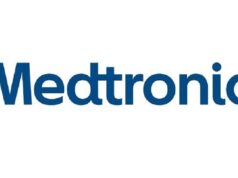“I would challenge anybody who says that VenaSeal is investigational. It’s a robust, well-evaluated, very well studied intervention that I think we would all agree has a part in the overall armamentarium for treating venous disease.” – Manj Gohel
During a recent roundtable discussion at the 2024 Charing Cross (CX) International Symposium (23–25 April, London, UK), Manj Gohel (Cambridge University Hospitals NHS Foundation Trust, Cambridge, UK), co-principal investigator with Kathleen Gibson (Lake Washington Vascular Surgeons, Bellevue, USA) of the Spectrum Program that includes two randomised controlled trials and a single-arm study, and Tobias Hirsch (Vein Competency Centre, Halle, Germany) sat down with John Laird (Chief medical officer of Medtronic Peripheral Vascular Health, St. Helena, USA) to discuss the unique outcome measures captured in this dataset and the benefits of using cyanoacrylate closure to treat superficial venous reflux.
The Spectrum Program is a postmarket clinical study that is split into three distinct studies to test Medtronic’s VenaSeal closure system: VenaSeal Spectrum endothermal ablation study (VenaSeal vs. endothermal ablation), VenaSeal stripping study (VenaSeal vs. surgical stripping), and the VenaSeal Spectrum Venous leg ulcer study.
“I think treating venous disease is a journey,” Gohel notes, and “the focus on patient satisfaction, the focus on quick recovery is something I would really want more people to pay attention to.”
Gibson reiterates that “the technologies that we have available in our armamentarium right now, both thermal and nonthermal, work well for patients. […] the outcomes are good, the patients are satisfied, and we improve their lives.”
Laird comments that patients who have been exposed to VenaSeal and ablation have a strong preference for the former, because they can avoid tumescent anaesthesia and, having to wear compression stockings “religiously”.
Gibson further comments that the study rigorously looked at adverse events. “Certainly, we are highlighting outcomes of interest such as thrombosis, phlebitis, and hypersensitivity,” she says.
Hirsch clarifies that the most important point regarding randomised evidence is, even before any treatment is begun, to select patients, inform them and individualise treatment plans, and for that: “what we need is evidence.”
This video is sponsored by Medtronic.











